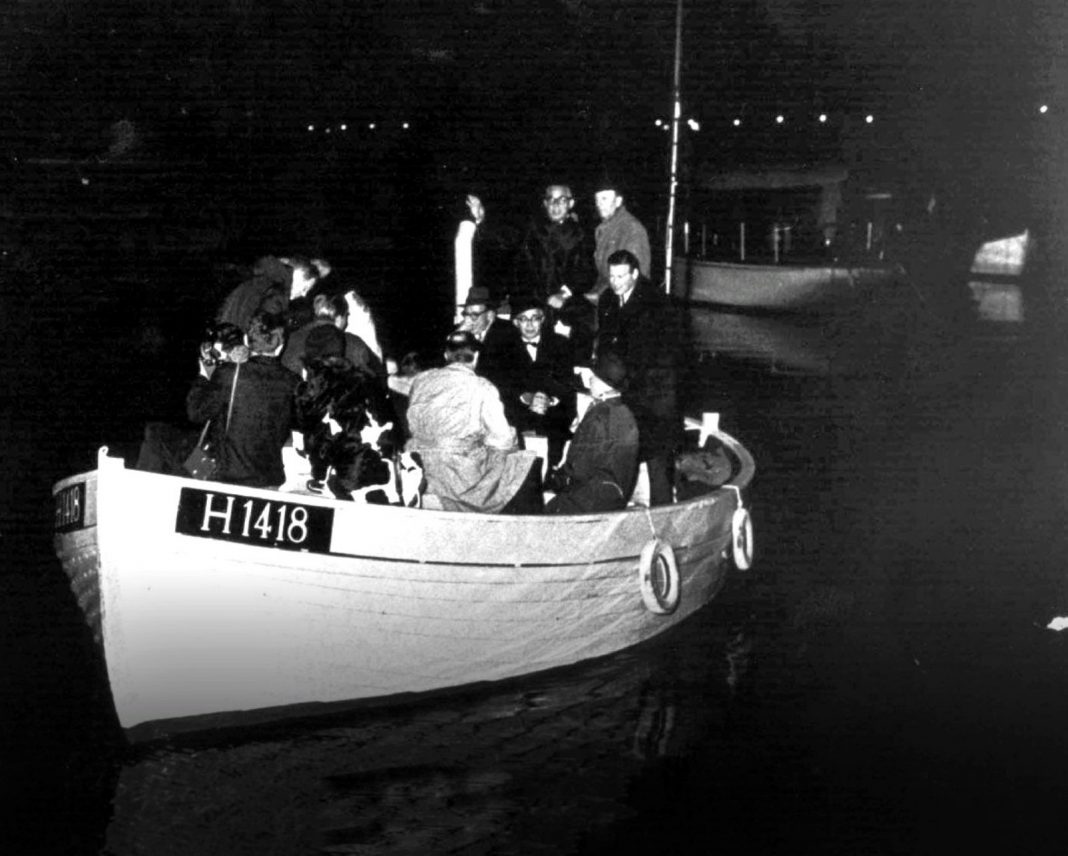The Nazis’ atrocities span across Europe and it is interesting to note that on the night of October 1, 1943, the Germans reigning in Denmark orchestrated a raid to capture and deport Danish Jews, forcing more than 7,000 men, women, and children into hiding. Until this night, the cooperation policy between the Danish government and the German occupying power had protected the Jewish community in Denmark from deportation to the Nazi extermination camps where more than 6 million Jews were murdered.
But in October 1943, more than 95% of the Jewish population in Denmark managed to escape to Sweden in what has since been recognized as a remarkable rescue operation. With help from a wide array of civil society actors, including the Church of Denmark, approximately 7,800 Jews eluded the planned round-up and deportation. However, nearly 500 Jews from Denmark did not escape the round-up and were deported to Theresienstadt.
Like Denmark, the Philippines also extended their protection to Jewish communities as former Philippine President Manuel L. Quezon’s enforced an Open Door policy – an initiative that saved close to 1,300 Jewish refugees fleeing the Holocaust.
October 2023 marks the 80th Commemoration of the Rescue of Danish Jews during the Holocaust, the Royal Danish Embassy is organizing an event in a commemorable testament to civil society engagement and humanity in action.
What are the lessons to be learned from this experience today – 80 years later? What made this remarkable rescue operation possible? What does the escape of the Danish Jews tell us about civil society and the responsibility to protect civilians during war and conflict? And how do we best teach the lessons of the Holocaust to future generations? These will be some of the main questions explored at our commemoration event.
Gracing the event will be Quezon City Mayor Joy Belmonte, Danish Ambassador, Franz-Michael “Dan-Dan” Mellbin, Israeli Ambassador, Ilan Fluss, and Executive Director of the Jewish Association of the Philippines, Lee Blumenthal.
The event will include a Wreath Laying, speeches from the above-mentioned, and a screening of “Voices in the Void” by Rabbi Bent Melchior & Ina-Miriam Rosenbaum – a short animated documentary about the rescue of the majority of Danish Jews in October 1943.
The historical events of October 1943 framing the escape of the majority of the Danish Jews is a commemorable legacy – a true light in the dark. It is a commemorable testament to civil society engagement and humanity in action. ∙ Though it is a story that we can be proud of, it is also a story of historical shadows. Not all Danes helped their fellow Jewish citizens – approximately 500 Danish Jews were captured and forcefully deported to Theresienstadt.
The events of October 1943 inspire us to reflect on universal ethical questions and dilemmas, as well as our own responsibility and courage to act. And 80 years later, the story remains relevant – and there is still much to learn from it. It is especially important to share the story with the younger generations in ways that engage them.
During the darkest days of the Holocaust, Denmark and the Philippines stood as beacons of hope and humanity, their actions demonstrating unwavering courage and compassion in the face of unimaginable cruelty.
Back then, the Philippines under the tutelage of former President Manuel L. Quezon, also took extraordinary measures to offer sanctuary to Jewish refugees fleeing the Holocaust. Quezon’s Open Door policy, an initiative emblematic of his profound commitment to humanitarianism, extended a lifeline to close to 1,300 Jewish refugees.
While our two nations might be distant, Denmark and the Philippines, shared a common thread of compassion and empathy during a time when the world was witnessing unimaginable atrocities. While separated by geography and culture, their actions were united by a profound sense of moral duty. Both countries demonstrated that in the face of hatred and persecution, the power of human kindness could still prevail.
The stories of Denmark and the Philippines during the time of Holocaust remind us that even in the darkest hours, there are those who will rise to the occasion, extending a helping hand to those in desperate need. Their actions serve as a timeless testament to the enduring values of compassion, solidarity, and the unwavering belief that every life is worth saving.














